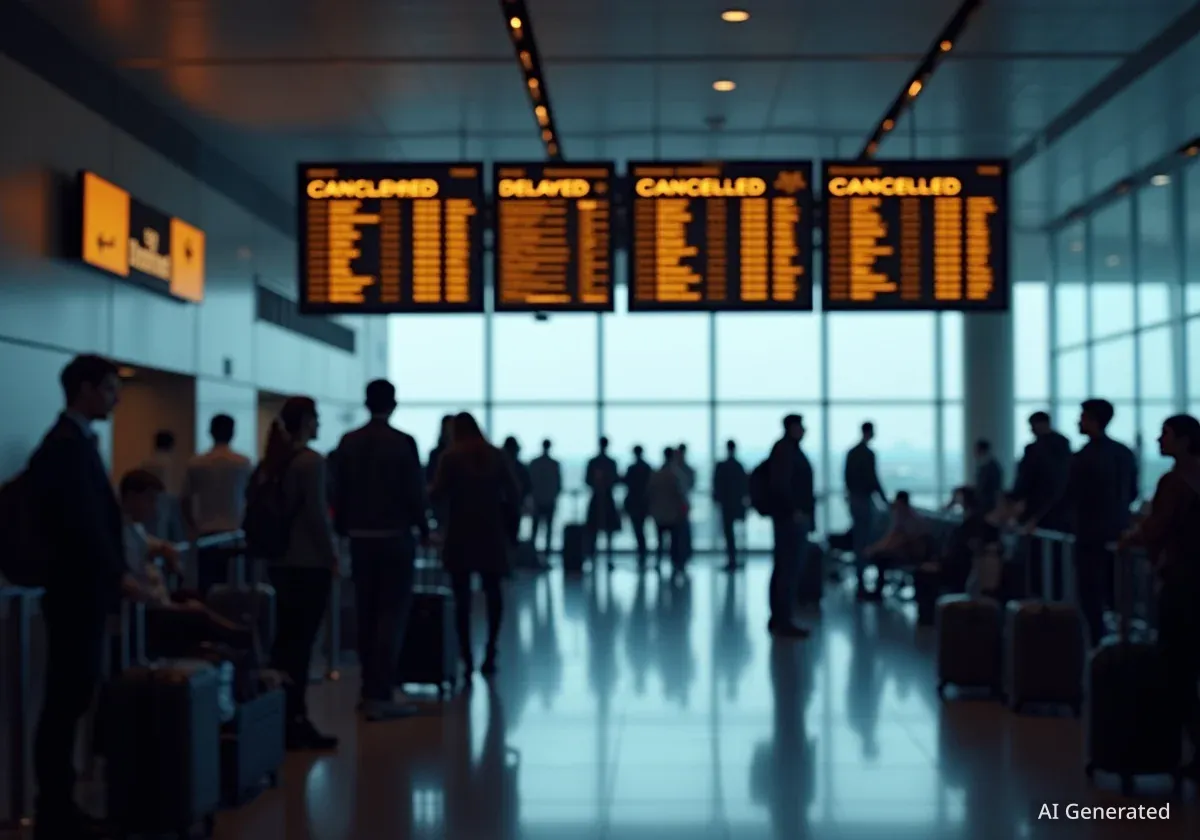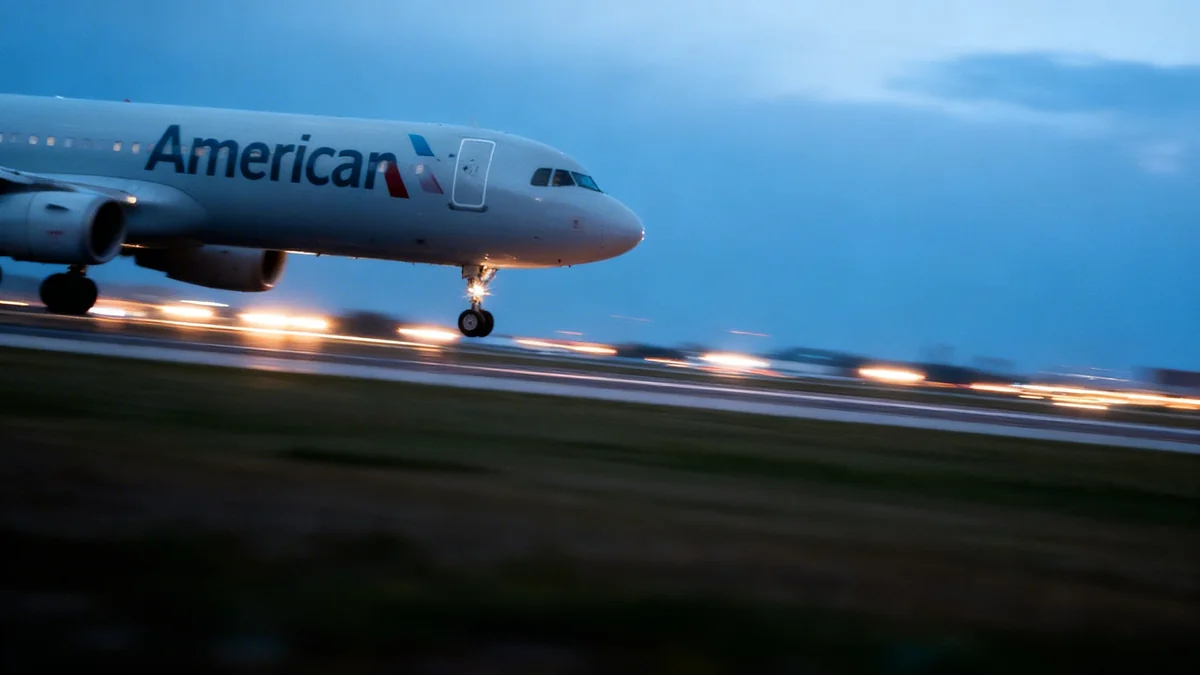Flights destined for Los Angeles International Airport (LAX) faced significant delays and ground stops on Sunday morning. The Federal Aviation Administration (FAA) confirmed that a staffing shortage at a Southern California air traffic control facility caused the disruption, impacting one of the world's busiest airports.
The temporary ground stop began at 11:42 a.m. Eastern time. This action held planes at their originating airports, leading to average delays of one hour and 40 minutes for travelers heading to Los Angeles.
Key Takeaways
- LAX flights experienced ground stops due to FAA staffing shortages.
- Delays averaged 1 hour and 40 minutes for inbound flights.
- Similar disruptions affected Newark, Teterboro, and Southwest Florida airports.
- A rise in air traffic controller sick calls contributed to the problem.
Air Traffic Control Under Strain
The FAA's decision to halt inbound traffic to LAX highlighted growing concerns within the nation's air traffic control system. U.S. Transportation Secretary Sean Duffy had previously indicated that travelers should anticipate more flight delays and cancellations.
This prediction came as air traffic controllers continued to work without pay. The federal government shutdown created financial stress for these essential workers.
Important Statistic
On the day before the LAX ground stop, there were 22 staffing triggers in the air traffic control system. This number is among the highest recorded since the government shutdown began, indicating significant strain.
Secretary Duffy appeared on the Fox News program “Sunday Morning Futures,” where he discussed the increasing number of controllers calling in sick. He linked these absences directly to financial worries and the demanding nature of the job.
"Just yesterday, ... we had 22 staffing triggers. That’s one of the highest that we have seen in the system since the shutdown began. And that’s a sign that the controllers are wearing thin," Duffy stated.
Widespread Disruptions Across the Nation
The issues were not isolated to Los Angeles. Staffing shortages also led to takeoff and arrival disruptions at other major airports on Sunday.
New Jersey's Newark Liberty International Airport experienced delays. Similarly, Teterboro Airport, also in New Jersey, saw operational problems. Southwest Florida International Airport in Fort Myers, Florida, also reported disruptions.
Background on Air Traffic Control
Air traffic controllers play a critical role in aviation safety. They manage the flow of aircraft in the sky and on the ground, preventing collisions and ensuring efficient operations. Their work requires intense focus and precision, making staffing levels crucial for maintaining safety and punctuality.
The FAA initially estimated the ground stop at LAX would lift by 1:30 p.m. Eastern time. However, the agency also noted that it might need to continue restricting traffic into the airport beyond that time.
The cascading effect of these delays impacts thousands of travelers. Airlines must adjust schedules, leading to further cancellations and missed connections for passengers.
Impact on Travelers and Airlines
Travelers faced uncertainty and frustration as their plans were suddenly altered. Many were left waiting at airports, unsure when their flights would depart or if they would be canceled entirely. The ripple effect of a ground stop at a major hub like LAX can extend for hours, affecting flights across the country.
Airlines grapple with the logistical challenges of rerouting flights and accommodating stranded passengers. This involves managing crew schedules, rebooking passengers, and dealing with significant operational costs.
- Passenger Frustration: Long waits and cancelled flights lead to significant inconvenience.
- Airline Costs: Delays incur fuel costs, crew overtime, and passenger compensation.
- Systemic Strain: The incidents highlight vulnerabilities in the air traffic control system.
The ongoing situation underscores the critical need for stable and adequate staffing within the federal air traffic control system. The safety and efficiency of national air travel depend heavily on a fully functional and well-supported workforce.
As the situation develops, passengers are advised to check with their airlines for the latest flight status updates before heading to the airport.





